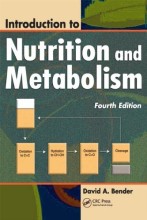General Medicine - Carbohydrate metabolism
16 important questions on General Medicine - Carbohydrate metabolism
What is the function of the GI tract?
What can you tell about the small intestine?
Divided into three sections:
- duodenum: chemical digestion of foods
- jejunum: nutrient absorption
- ileum: nutrient absorption
What can you tell about the large intestine?
Divided into...
- cecum: appendix hangs on this
- colon: longest section
- rectum: storage site for feces
- anal canal
- anus
- Higher grades + faster learning
- Never study anything twice
- 100% sure, 100% understanding
What is coeliac disease (sprue)?
- genetically predisposed/hereditary
- first-degree relatives have 1 in 10 risk
- ingestion of gluten leads to damage in small intestine
- affect 1 in 100 people
- more women than men
- symptoms: long diarrhea, bloating, steatorrhea, decreased appetite, failure to thrive and grow
- cure: eat gluten-free diet
How do you diagnose coeliac disease?
2 tests:
- Anti-tissue transglutaminase (tTG)-IgA test. 95% of patients will have this antibody.
- Intestinal biopsies to confirm presence of flattened villi.
What is Inflammatory Bowel Disease?
1. Crohn's disease and 2. Ulcerative Colitis
characterized by chronic inflammation of the GI tract. Prolonged inflammation results in damage to the GI tract. Most likely in < 30 yrs in Europeans.
Why does IBD occur? So what are the risk factors?
- The immune system responds incorrectly to environmental triggers, which causes inflammation of GI tract.
- Genetics play a role: someone with a family history of IBD is more likely to develop IBD, due to genetic mutations
- use of Non-Steroidal Anti-Inflammatory medications (NSAIDs) may increase risk or worsen disease
Risk factors for Crohn's disease?
- Smoking
- bacteria such as E. Coli, pseudomona, mycobacteria have been linked to increasing risk
How to diagnose IBD?
And how to treat it?
- endoscopy (for Crohn)
- colonoscopy (for ulcerative colitis)
- imaging studies (e.g., radiography, MRI, CT)
- stool samples to exclude infection
- blood tests
Treat with...
- medications such as
- amino salicylates, corticosteroids, immune modulators, biologics
- vaccinations to prevent infections
- in severe cases: surgery to remove damaged parts of GI tract
What is irritable bowel syndrome (IBS) ?
10-10% of the population has IBS. It affects people of all ages, but mostly < 50yrs. 2 in 3 are female.
What are symptoms of IBS?
- Abdominal pain or discomfort
- altered bowel habit
- pain is relieved by defecation
- pain is associated with increase/decrease in bowel movement frequency
- pain is associated with the bowel movements becoming harder/softer in consistency
How to treat IBS?
- low FODMAP diet: to control symptoms associated with IBS
- group of short-chain carbs are problematic because poorly absorbed in small intestine and fast fermented by bacteria in the gut -> gas production
What is diarrhoeal disease?
3 types...
Infection can spread through contaminated food or water, or from person-to-person (poor hygiene). It can lat several days.
3 types...
- acute watery diarrhea - lasts several hours/days, and includes cholera
- acute bloody diarrhea - dysentery
- persistent diarrhea - lasts 14 days or longer
Symptoms of diarrhoeal disease...
- Dehydration: most severe
- water and electrolytes (sodium, chloride, potassium, bicarbonate) are lost through stool, vomit, sweat, urine, breathing.
- no dehydration: not enough signs to classify as some or severe dehydration
- some dehydration: two or more of the following: restlessness, irritability, sunken eyes, drinks eagerly, thirsty
- severe dehydration: at least two of the following: lethargy/unconsciousness, sunken eyes, unableto drink/drink poorly, skin pinch goes back very slowly
Who is at risk of getting diarrhea disease?
How to prevent, diagnose and treat diarrhea?
- safe drinking-water, use of improved sanitation and handwashing with soap
Treat:
- oral rehydration solution (ORS), clean water, sugar and salt. 10-14 day supplemental treatment of 20 mg zinc
The question on the page originate from the summary of the following study material:
- A unique study and practice tool
- Never study anything twice again
- Get the grades you hope for
- 100% sure, 100% understanding





























